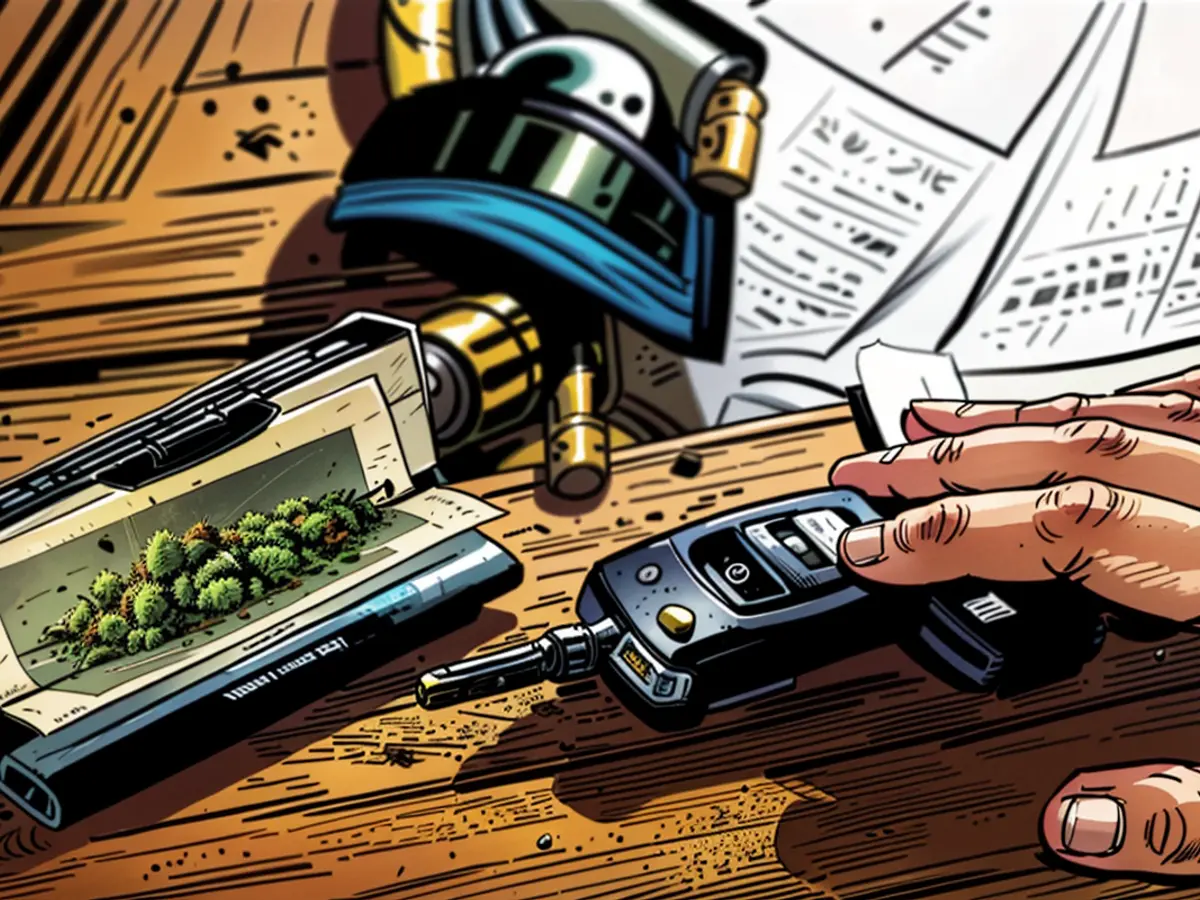Federal Council adopts new regulations for cannabis driving
For drivers, new regulations and fines are coming for Cannabis at the wheel. The Bundesrat allowed a law passed by the Bundestag to pass, which sets a limit of 3.5 nanograms per milliliter of blood for the intoxicating substance THC - similar to the 0.5 permille limit for alcohol. stricter rules are coming for beginners and mixed consumption of Cannabis and alcohol. These new regulations are expected to come into effect after the following legislative procedure, so they will likely take effect in the summer.
Since recreational use and private Cannabis cultivation for adults have been legal since April 1st with many conditions, accompanying traffic regulations are now following. Previously, a strict line was taken that consequences would follow if THC was detected. A value of 1 nanogram has been established in case law. However, experts spoke out at the Traffic Court in 2022 for a "reasonable" increase. This is considered too low, as many would be sanctioned for whom a reduction in driving safety could not be justified.
In the future, according to the law: Anyone who intentionally or negligently has 3.5 nanograms or more of THC on the way is, in principle, at risk of a fine of 500 Euro and a one-month driving ban. If alcohol is also consumed, a fine of 1000 Euro is usually threatened. For beginners, it means in the future that it is like with alcohol: In the two-year probationary period for the driving license and for those under 21 years of age, there is a Cannabis ban - the limit of 3.5 nanograms therefore does not apply. For violations, fines of 250 Euro are usually threatened.
The Federal Council has announced stricter regulations for novice drivers, including a cannabis ban during their probationary period and a higher limit for THC detection, aiming to prevent mixed consumption with alcohol. The new regulations, set to take effect in the summer, will result in hefty fines of up to 1000 Euro for cannabis use while driving, if alcohol is also consumed. Experts had previously argued that the current threshold of 1 nanogram for THC detection was too low, leading to numerous unnecessary sanctions for drivers whose driving safety was not significantly impaired.








